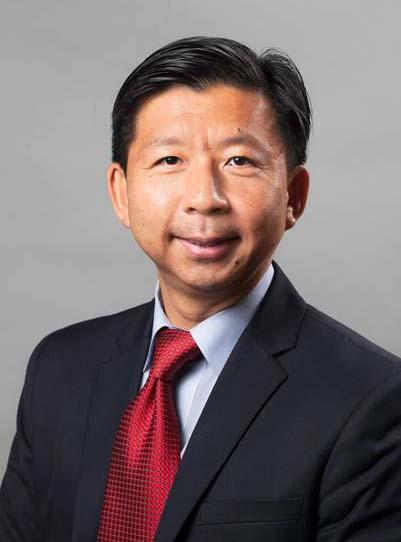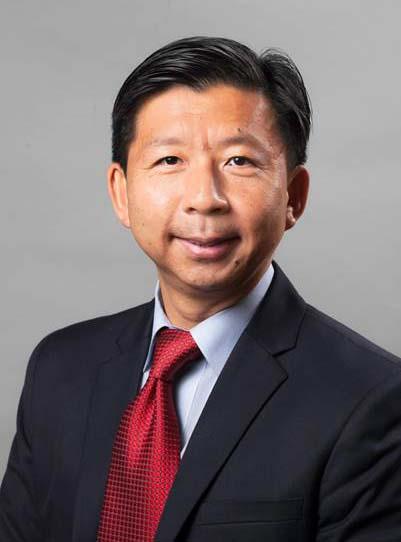
Credit: XinQi Dong
Older Asian-American immigrants are healthier and happier if they are socially active, connected to their families and communities and are able to maintain their cultural values while adapting to western culture, according to a new Rutgers study.
The research appears in the current issue of the journal Gerontology and Geriatric Medicine.
XinQi Dong, director of Rutgers University's Institute for Health, Health Care Policy and Aging Research and the lead researcher of the Population Study of Chinese Elderly in Chicago (PINE), published 20 articles based primarily on his teams' examination of the health and wellbeing of Chinese older adults globally. For the study, researchers interviewed more than 3,000 Chinese Americans between 60 and 105 over a two-year period to explore their psychological wellbeing, involvement in their community and neighborhood, quality of life, and acculturation and use of traditional Chinese medicine.
"Aging Asian-Americans are underrepresented in the discussion of health disparity issues in the United States," said Dong, who guest-edited the special issue focusing on Asian-American health. "This journal compilation is the first substantive step in trying to understand the health of this population."
The research challenges the pervasive "model minority myth" — the belief that U.S. Asian populations have fared better than other ethnic groups in socioeconomic status, social relationships and health. The Chinese-Americans in the studies reflect the overall Asian-American population, which face a high prevalence of psychological distress and disorders, dementia and cancer, especially in advanced age. "These conditions usually go untreated for multiple reasons, such as a desire to 'save face' and a lack of culturally and linguistically appropriate treatment and prevention methods," Dong said.
The articles address a gap in understanding health equity issues in the Asian community — in the United States and globally — and offers insight on how health care professionals and policymakers can provide support through understanding cultural values, such as filial piety, collectivism, individualism and sense of harmony in families.
Six of the papers examine the risk factors and impact of psychological distress among global Chinese populations. The researchers found that while depression and loneliness may negatively impact cognitive function, those effects may be buffered by individual, social and family resources. "We found the more older adults talked about their concerns, the lower the likelihood they experienced depressive symptoms," Dong said. "Individuals who were frequently demanded upon or criticized were more likely to experience depressive symptoms."
The studies show that a well-connected community, active social life and high acculturation are essential to improving older Chinese adults' health and lowering depression. Actively social individuals were found to participate more in preventative health screenings for diseases like cancer, while negative neighborhood conditions, such as crime or decrepit buildings, was shown to potentially increase the risk of self-neglect. "We also found that immigrants who had been in the United States longer were at higher risk of tooth symptoms, which shows that more studies are needed to better understand the relationship between acculturation and oral health in Chinese-American populations," Dong said.
Individuals who were employed and those who lived in rural areas reported a higher quality of life than those who did not work or lived in urban settings. The studies revealed that a higher perceived gap in acculturation between grandparents and grandchildren negatively impacted their relationships, which in turn could undermine the health and wellbeing of the older generation. "This tells us that acculturation should be looked at on a family level as well as an individual level," Dong said.
Family relationships and cultural backgrounds also factor in to end-of-life care, a complex concept in the Asian-American community, Dong said. "Our research indicates that a comprehensive end-of-life care plan should include cultural considerations and traditional family values in addition to physical, psychosocial and spiritual needs," he noted.
The studies revealed that traditional Chinese medicine is still widely used among Chinese older adults in the United States in conjunction with non-western and western forms of health care, especially with respect to preventive care.
"Health is multifaceted," Dong said. "These studies reinforce the idea that we cannot just look at the individual, but must take into account the person's social, community, national and cultural contexts. More systematic and integrated approaches are needed to generate and translate knowledge in Asian populations in order to move the needle on health equity in our increasing diverse populations."
###
Media Contact
Patti Verbanas
[email protected]
848-932-0551
@RutgersU
http://www.rutgers.edu
Original Source
https://news.rutgers.edu/research-news/asian-americans-face-barriers-healthy-aging/20180718#.W09e8NhKi4R http://dx.doi.org/10.1177/2333721418778169





